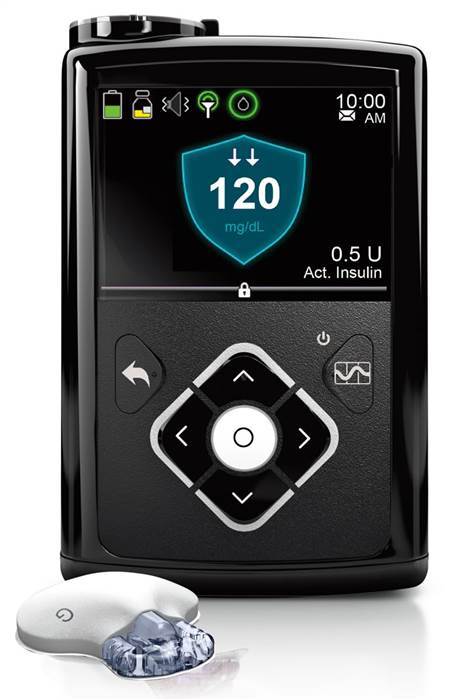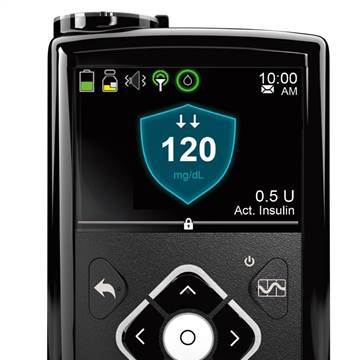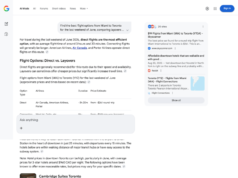The Food and Drug Administration has approved the first artificial pancreas — a cellphone-sized device that automatically takes care of checking a patient’s blood sugar and delivers lifesaving insulin as needed.
The surprise approval Wednesday — it wasn’t expected until next year sometime — means patients with type-1 diabetes will be able to hook up the device and skip the regular finger pricks to constantly check their blood sugar.


Medtronic’s MiniMed 670G system includes a sensor that measures glucose levels under the skin; an insulin pump strapped to the body; and an infusion patch with a catheter that delivers insulin.
Related: ‘Bionic Pancreas’ Astonishes Researchers
Many groups are working on similar systems aimed at freeing diabetes patients of the tedious job of constantly checking their blood sugar and delivering insulin, and of the fear of sudden death if their blood sugar plunges too low.
Angie Platt of Encino, California says she burst into tears when she heard the news. Her 13-year-old son Jonathan has been testing the device.
“This is something that you think about nonstop.”
“I have been crying for the past hour. As soon as I saw the email, I just burst into tears,” Platt told NBC News.
Jonathan was diagnosed with type-1 diabetes in 2009. It was a devastating diagnosis, Platt says.
“This is something that you think about nonstop,” she said.
“You think about it when your kid is on the way to school, when your kid is at school, when your kid is at basketball practice. You never not think about it,” said Platt, who also has twin 3-year-old boys.
“Things that are so easy for other families, like sending your kid to camp or sending your kid to a neighbor’s house or, god forbid, a sleepover — the level of work that it takes to make that happen is tremendous.”


About 5 percent of the 29 million Americans with diabetes have Type-1 diabetes.
Type-1 diabetes is an autoimmune disease, caused when the body mistakenly destroys pancreatic cells that produce hormones like insulin and glucagon that control blood sugar. High glucose levels damage tiny blood vessels, which in turn can lead to blindness, heart disease, stroke and kidney failure. People can lose toes, feet or legs to amputation.
When levels fall too low, patients can pass out and even die.
Most people with type-1 diabetes must constantly check their blood sugar throughout the day, administering insulin according to what they are eating and how much they are exercising.
Wearable devices allow more automatic and continuous monitoring and insulin dosing, but until now, there has been no system on the market that coordinates the blood sugar monitor with the insulin delivery.
“This first-of-its-kind technology can provide people with type 1 diabetes greater freedom to live their lives without having to consistently and manually monitor baseline glucose levels and administer insulin,” said FDA’s Dr. Jeffrey Shuren, who directs the agency’s medical device branch.
“A mistake is fatal.”
Parents of kids with type-1 diabetes say it is a condition that never gives them a break.
“My husband and I, for the past seven years, we woke up every night at 10, at midnight and at 3 a.m.,” Platt said. They had to check Jonathan’s blood sugar and force-feed him juice if it was too low.
“A mistake is fatal,” she said.
The device has made a huge difference for Jonathan and for the rest of the family, Platt says.The new device keeps Jonathan’s blood sugar consistent, Platt said, even though it’s not totally automatic. Users need to manually punch in insulin doses after most meals.
“It was like a fog lifted,” she said. “Academically and athletically, it was amazing — the transformation. It made us realize what for seven years had been his normal.”
Jonathan took part in a trial of just a few dozen people to see if the device could be used safely. Based on the results, the FDA approved it for marketing.
“As part of this approval, the FDA is requiring a post-market study to better understand how the device performs in real-world settings,” the FDA said in a statement.
“While the device is being approved today for use in people 14 years of age and older with type 1 diabetes, Medtronic is currently performing clinical studies to evaluate the safety and effectiveness of the device in diabetic children 7-13 years old.”
In the meantime, the agency let Jonathan keep using it.
Related: Artificial Pancreas Works in Real-World Experiment
“The whole house is just lighter because we are not as worried as much,” Platt said.
The device probably won’t hit the market until spring, Medtronic says.
Mike Weinstein, JPMorgan senior medical technology analyst, says he expects a slow roll-out, with Medtronic offering the device first to customers using its 630G insulin pump device.
The current MiniMed 630G system ranges between $6,000 and $9,000, a spokesman for Medtronic said. The final cost will depend on a patient’s health insurance plan, but the company says…






